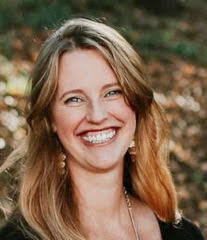|
Humans are beautifully complex creatures. One of the privileges of being a spiritual director is walking alongside as our directees journey towards understanding and integrating all of their wonderful systems and weaving them into their experience of the Divine. Trauma often causes disruptions to these systems and to one’s ability to integrate them. In some situations, a directee may have clearly discernible or even previously diagnosed challenges to their physical and mental health as a result of their trauma story. These issues can certainly be brought to direction, but in some instances may impede the direction process, or be more pressing concerns than the spiritual questions related to them. This is why we at ICTG encourage treatment and healing plans that include a variety of caregivers, like those represented in our Village of Care series. We advocate for referral based care, meaning that one particular professional can not heal all wounds. Collaboration with colleagues in other care fields helps us all to provide better support and make sure those we are working with get the best help for their situation. However, sometimes, we may discover that we have a directee who is resistant to being referred to other caregivers. When we bump into this resistance, communication with our directee is key. We need to take the time to understand why they are hesitant, or perhaps even refuse, to seek other forms of care. It may be that some explanation or education of what other treatment forms entail is needed. Or perhaps they need help finding someone to go with them to a consultation. Appropriate and accurate information may help them to understand what care from a doctor, therapist, or other caregiver might provide them. We know that neither we, nor our ministry, can heal all wounds. Caring for those who have experienced the disruption of trauma, and caring for ourselves in the midst, will look different in every situation. In some situations, referral is a difficult option for more concrete reasons. Perhaps services are limited in the area (in many parts of the country therapists in particular are few and far between). Perhaps finances are a challenge and insurance (if they have it) does not cover the needed care. In some cases, online care services via video conference or over the phone may be an option for these folks. The internet can provide exercise tutorials, cooking instructions, and access to shopping for tools or supplements that local stores may not carry. Helping with some creative problem solving is one of the ways we can continue to support the whole person health journeys of our directees. Another potential difficulty with referral is when the directee has a particular cultural or religious belief that stops them from participating in specific types of care. Here again, communication is key. It may be that there is some work to be done in examining the beliefs that hinder them from receiving care. On the other hand, if it is the case that their resistance to treatment is non-negotiable for them at this time, you as the director will have to decide how you would like to proceed. If applicable, it is important at minimum to have a conversation about how direction experiences or outcomes may be impacted by their decision. Depending on the severity of their situation, it is important to consider your own support system and to maintain appropriate boundaries in offering care or helping to problem solve with and for the directee. We know as directors that we are primarily witnesses to God working in the lives of those we companion. We know that neither we, nor our ministry, can heal all wounds. Caring for those who have experienced the disruption of trauma, and caring for ourselves in the midst, will look different in every situation. Caring for ourselves will help us to be consistent and steady in our offerings, and communicating openly, with some creative problem solving thrown in, will help our directees renew their sense of Wholeness.
1 Comment
|
�
SPIRITUAL DIRECTION BLOG
From 2012-2020, this blog space explored expanding understanding and best practices for holistic health in the context of spiritual direction.
This website serves as a historical mark of work the Institute conducted prior to 2022. This website is no longer updated. Archives
September 2020
Categories
All
|



 RSS Feed
RSS Feed
